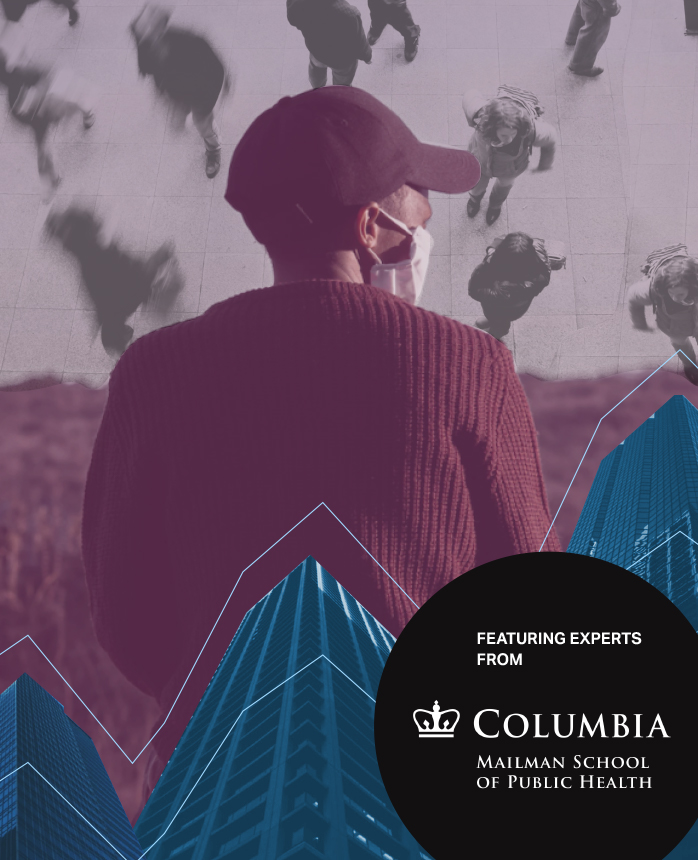Program Overview
Millions of us around the world have found ourselves in an unfamiliar role over the past year: public health decision maker. To keep our teams healthy, our workplaces safe, and our organizations functioning, we’re scouring the news, following public health officials on Twitter, and scrambling to keep up with ever-changing guidelines and best practices. We’re building policies and making decisions that have life-or-death ramifications, often without expert guidance or experience. We’re mastering new modes of communication and asking for levels of trust from our people that stretch well outside the boundaries of business as usual. We are building the plane as we fly it through a thunderstorm. And we could use some support.
We’ve worked with epidemiologists and public health experts from Columbia University’s Mailman School of Public Health to meet this growing need with Workplace Public Health, a Program made for anyone tasked with guiding their organization, workforce or team safely through this pandemic and beyond.
Workplace Public Health was built on the recognition that workplace public health is a specific and critical emerging skill that combines the science and policy dimensions of public health with the managerial, leadership, and communication skills necessary for impact in modern organizations.
The Workplace Public Health Program will go deep on the science of Covid-19 and look at the big problems every public health policy and policymaker must solve, as well as the ways that communication, culture, and strategic foresight dramatically impact whether we fail or succeed in tackling the pandemic. We've pulled case studies and best practices from around the world, and will prepare learners for a future in which public health incidences are a manageable reality. You’ll learn the skills you need to make a difference and join a vibrant community of leaders, scientists, and entrepreneurs from around the world committed to doing it alongside you.
This Program is dedicated to the many public health workers globally who devote their lives to the science, management, research, awareness building, and implementation of public health initiatives and pandemic response.
It is also with heavy but hopeful hearts that we dedicate this Program—and the conversations it will inspire—to two public health heroes who were particularly impactful to the Nomadic family: Jennifer Schlecht and Dr. Carolyn Keith Burr.
